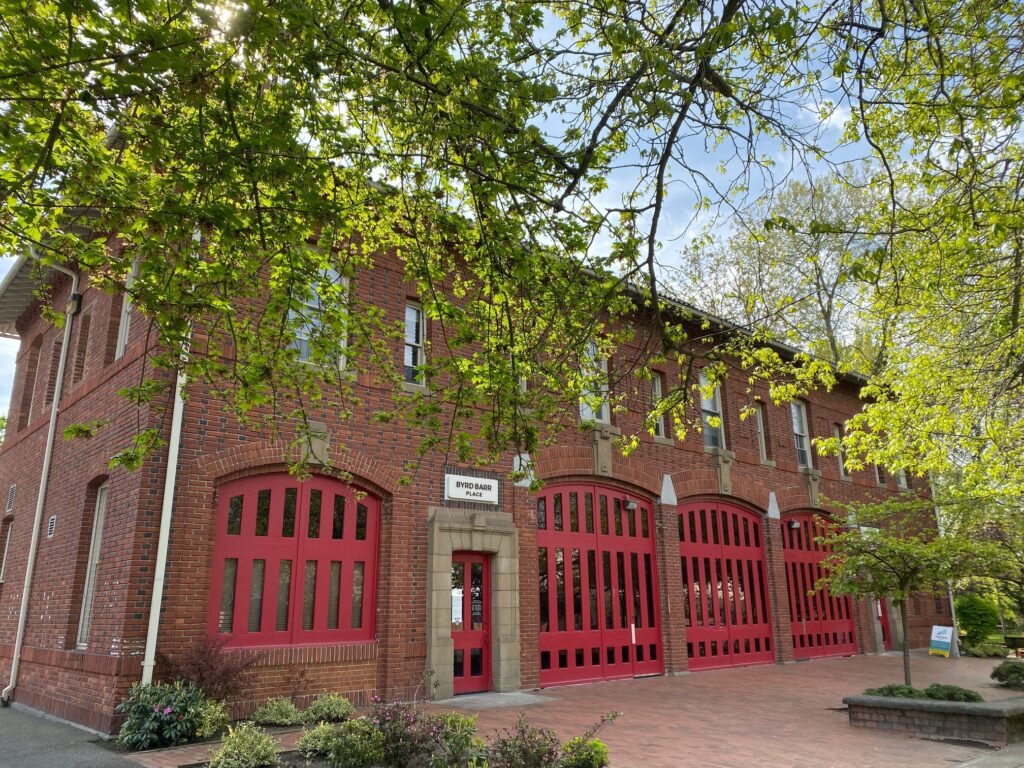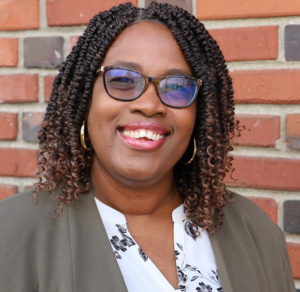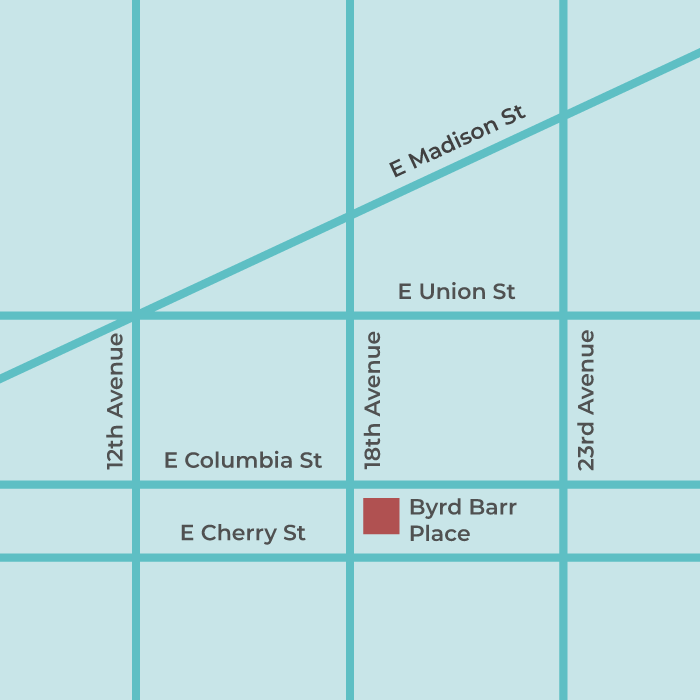May is Community Action Month, a time to recognize and reinforce the vital work of community action agencies across the nation to fight poverty and empower communities. Byrd Barr Place is a community action agency, and I am proud of the collective impact that this organization has had over six decades — from the Central Area Motivation Program (CAMP) to Centerstone to Byrd Barr Place — in helping people help themselves and creating equitable opportunities.
Our local anti-poverty approach
In 1964, poverty affected 19% of people living in the United States. In response to rising demands for change, President Lyndon B. Johnson declared a War on Poverty. With his signing of the Economic Opportunity Act, a number of programs, including the Job Corps, Neighborhood Youth Corps, and the Community Action Program (CAP), were created to stimulate employment opportunities and improve living conditions. Our organization was founded in this context, as one of the first community action agencies in the United States and designed in service of Seattle’s Black community.
At the time, Seattle was a segregated city in which 75% of the Black population was confined to the Central District by racially restrictive covenants. Unemployment among Black people was double that of white people, with few job opportunities. Even the Central District grocery stores that served Black customers only hired white staff.
By and for the Black community
Created by and for Black people, CAMP was an essential arm of the civil rights movement — tackling employment discrimination, school desegregation, open housing, and more. Our “by and for” philosophy ensured that services and programs were not only tailored to meet the specific needs of the Black community but also delivered by individuals who shared similar life experiences.
Over 60 years, our personal and empathetic approach has enhanced the effectiveness of our programs and kept us grounded in the needs and aspirations of our community members. From the tumultuous times of the civil rights movement to the ongoing gentrification of Seattle’s Central District and displacement of Black people, our organization has served as a cultural anchor for the Black community.
Community action agencies’ role in anti-displacement
Byrd Barr Place is one of 30 community action agencies in Washington, working together to address the causes and conditions of poverty in order to build a just society and culture of belong across the state. From the Coastal Community Action Program in Grays Harbor to the Benton-Franklin Community Action Committee in Pasco, our Washington State Community Action Partnership supports each other and our communities by sharing best practices and using our collective voice to advocate for equitable opportunities for people whom society has marginalized. We are also part of the National Community Action Partnership that connects more than 1,000 agencies across the country.
All of these agencies share a common cause: building a more equitable society by tackling poverty and creating opportunities to thrive for people most affected by injustices. Depending on the specific needs and aspirations of their communities, community action agencies offer a range of services and programs, such as energy and rental assistance, connections to affordable housing, homeownership training, personal finance education, clothing banks, health care, legal aid, youth programming, and more. These essential services and wholistic programs help people build stability, stay where they are, and grow self-sufficiency.
A model of community support
At Byrd Barr Place, we follow this model, nurturing a more equitable Seattle through innovative programs and advocacy that empowers people to live healthy, prosperous lives. While we started as and will always be a Black organization, we recognize our work for racial and economic justice is for all people whom society has oppressed, and for social health as a whole. Here’s how we support the community:
- Safety-net services: Byrd Barr Place offers essential services — food, shelter, energy assistance, and financial tools — to anyone who needs them, serving more than 1,100 households weekly. We address immediate needs, like power shutoffs and eviction prevention, as well as provide programs that support people’s well-being and self-sufficiency, like mental health workshops and financial management webinars.
- Community engagement and advocacy: The organization also advocates for equity statewide through groundbreaking research and mobilizing communities to dismantle poverty and racism. Since our early days, we have understood that direct service alone, while essential to the survival of individuals and families, cannot undo racism. The other half of the equation is effective advocacy that leads to systemic change. True to our roots, we continue to engage the African American/Black community in Seattle’s Central District, collaborating to elevate community-based solutions to education, housing, job, and health care disparities.
The ongoing need: Our call to action
Despite our successes, the need in our community continues to grow. Poverty is a complex and pervasive issue that demands constant vigilance and adaptation of strategies. The economic challenges of recent years have only increased the pressures on people striving to make ends meet, making our work more critical than ever.
Community action agencies like ours play an essential role in addressing these challenges. This Community Action Month, let us renew our commitment to community empowerment and action. We need increased collaboration and resources from community members, local businesses, policymakers, and others to expand our reach and continue to enhance our services and programs. The fight against poverty is not just about meeting immediate needs — it’s about changing systems and investing in the future.
I invite all of you to engage with us. Whether by volunteering, advocating, or donating, your support makes a real difference. Together, we can make a difference. Together, we are community action.
This blog was written by Byrd Barr Place CEO Dr. Angela Griffin in May 2024.



